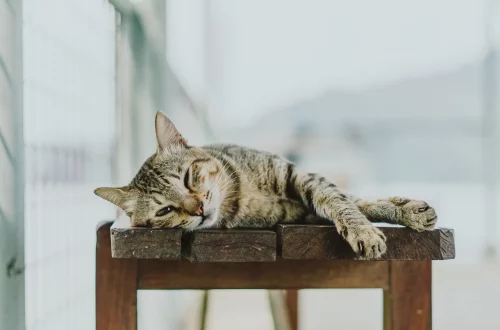
Effective Homeopathic Remedies for Cat UTI Relief
Homeowners with feline companions often encounter a range of health issues, one of the more common being urinary tract infections (UTIs). A UTI in cats can lead to discomfort and distress, not only for the pet but also for the owner who wants to provide the best care possible. These infections can manifest in various symptoms, including frequent urination, straining to urinate, and even blood in the urine. While conventional veterinary treatments are typically effective, many pet owners are increasingly interested in homeopathic remedies that can offer relief without the side effects associated with pharmaceuticals.
Homeopathy is based on the principle of treating “like with like,” and it focuses on stimulating the body’s own healing processes. Many believe that homeopathic remedies can be a safe and effective option for managing UTIs in cats, addressing both the immediate symptoms and the underlying causes. The appeal of these remedies often lies in their natural origins, making them an attractive alternative for those who prefer holistic approaches to health care. However, understanding how to properly use these remedies is crucial, as not all homeopathic treatments are suitable for every situation.
In this article, we will explore various effective homeopathic remedies for alleviating UTI symptoms in cats. By understanding their uses and benefits, cat owners can make informed decisions about their pets’ health management.
Understanding Urinary Tract Infections in Cats
Urinary tract infections in cats can be caused by various factors, including bacteria, inflammation, and even stress. Recognizing the symptoms is the first step in addressing the issue. Common signs of a UTI may include frequent trips to the litter box, straining to urinate, and, in some cases, blood in the urine. Additionally, affected cats may display discomfort or pain while urinating, often vocalizing their distress.
The anatomy of a cat’s urinary system makes them susceptible to infections. Female cats, in particular, have a shorter urethra, which can allow bacteria to enter the bladder more easily. It’s essential for cat owners to pay attention to their pets’ behaviors and be proactive about seeking treatment if symptoms arise.
Homeopathy can offer a gentle approach to managing UTIs. Rather than simply masking the symptoms, homeopathic remedies aim to stimulate the cat’s natural healing processes. This holistic perspective takes into account the cat’s overall health, behavior, and specific symptoms. For instance, a remedy that works well for one cat may not be as effective for another, highlighting the importance of individualized treatment plans.
Additionally, maintaining a cat’s hydration is crucial in preventing and managing UTIs. Ensuring that your cat drinks enough water can help dilute their urine and flush out bacteria. Providing fresh water daily and incorporating wet food into their diet are effective strategies to encourage hydration.
When considering homeopathic remedies, it’s vital to consult with a veterinarian who is knowledgeable about both conventional and alternative treatments. This ensures that you are making safe and informed choices for your feline friend.
Popular Homeopathic Remedies for Cat UTI Relief
Several homeopathic remedies have proven effective in providing relief from urinary tract infections in cats. One of the most commonly used is **Cantharis**. This remedy is derived from the Spanish fly and is particularly beneficial for cats that experience burning sensations during urination. Cantharis can help reduce the urgency and frequency of urination while alleviating the associated discomfort.
Another popular remedy is **Pulsatilla**, which is often recommended for cats that display emotional symptoms alongside physical ones. If a cat is showing signs of stress or anxiety due to their UTI, Pulsatilla may provide the emotional support needed to facilitate healing. This remedy is especially suitable for cats that are clingy or seeking extra affection while unwell.
**Staphysagria** is also worth mentioning, as it is known for its efficacy in treating urinary issues linked to emotional stress or trauma. If a cat’s UTI is believed to be triggered by a recent change in their environment or routine, Staphysagria could be a beneficial option.
When administering homeopathic remedies, it’s crucial to follow the recommended dosages based on your cat’s weight and severity of symptoms. Remedies can be given in various forms, including pellets, powders, or liquid dilutions. Many pet owners find that dissolving pellets in water and administering them with a syringe is an effective method, especially for more finicky cats.
It’s essential to monitor your cat’s response to the remedy, as some may improve quickly while others may take longer to show signs of relief. If symptoms persist or worsen, seeking veterinary advice is imperative to rule out any serious underlying conditions.
Complementary Approaches to Support Cat UTI Health
In addition to homeopathic remedies, there are several complementary approaches that can support your cat’s urinary health. Nutrition plays a significant role in preventing UTIs. A balanced diet that includes high-quality protein and adequate moisture can help maintain urinary tract health. Look for cat foods that are specifically formulated to promote urinary health, as they often contain ingredients designed to maintain proper pH levels in the urine.
Moreover, incorporating cranberry extract into your cat’s diet may offer additional benefits. Cranberries are known for their ability to prevent bacteria from adhering to the urinary tract walls, potentially reducing the risk of infections. However, it’s essential to consult with a veterinarian before adding any supplements to your cat’s diet to ensure they are safe and appropriate for your pet’s specific needs.
Another complementary approach is to enhance your cat’s environment to reduce stress. Creating a calm and secure space can be beneficial, especially for cats that may be prone to anxiety. Providing hiding spots, vertical spaces, and interactive toys can help alleviate stress and promote overall well-being.
Additionally, regular playtime and mental stimulation can contribute to your cat’s physical health, which in turn supports their immune system. Engaging your cat in interactive play can help reduce anxiety and increase their overall happiness, making it less likely for them to experience stress-related health issues.
Lastly, ensuring that your cat has constant access to fresh water is critical. You can encourage hydration by using a cat water fountain, which many cats find more appealing than a stagnant bowl. Maintaining hydration can help dilute urine and flush out potential pathogens, reducing the likelihood of UTIs.
When to Seek Veterinary Care for Your Cat
While homeopathic remedies can be effective for managing mild urinary tract infections, there are instances when veterinary care is necessary. If your cat exhibits severe symptoms, such as excessive straining to urinate, blood in the urine, or signs of pain, it is crucial to seek professional help immediately.
Additionally, if your cat is lethargic, refuses to eat or drink, or shows signs of distress, these are red flags that warrant an examination by a veterinarian. Early intervention can prevent more serious complications, such as bladder stones or kidney infections, which can arise if a UTI is left untreated.
Regular veterinary check-ups are also essential for maintaining your cat’s overall health, particularly as they age. Your veterinarian can provide guidance on preventive measures, discuss dietary choices, and recommend appropriate supplements to support urinary health.
In summary, while homeopathic remedies can provide relief for urinary tract infections in cats, they should be considered part of a broader health management strategy. By combining these remedies with proper nutrition, hydration, and stress-reduction techniques, cat owners can promote their pets’ well-being and help prevent future health issues.
**Disclaimer:** This article is for informational purposes only and does not constitute medical advice. Always consult a veterinarian for health-related concerns regarding your pet.




